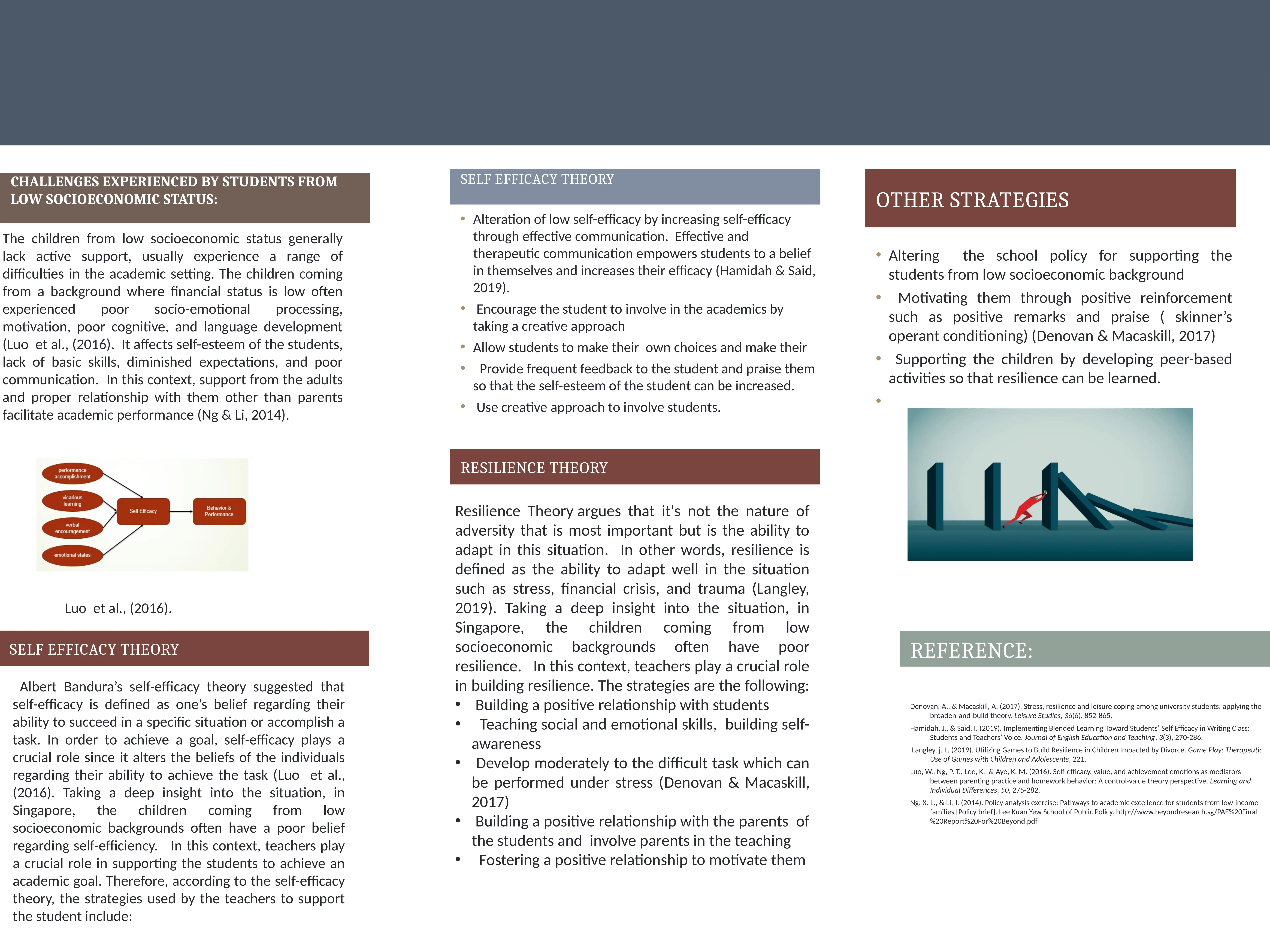Performance Psychology PSY371e GBA01: Student challenges and solutions
VerifiedAdded on 2022/08/21
|1
|770
|17
Presentation
AI Summary
This presentation, prepared for PSY371e Performance Psychology, examines the challenges encountered by students from low socioeconomic backgrounds in Singapore. It delves into the application of Albert Bandura’s self-efficacy theory and resilience theory to understand the difficulties these students face, including poor self-belief, socio-emotional processing issues, and limited support. The presentation highlights the crucial role of teachers in fostering self-efficacy through strategies like positive reinforcement, peer-based activities, effective communication, and creative academic approaches. Additionally, it explores how teachers can build resilience by cultivating positive relationships, teaching social and emotional skills, and involving parents. The presentation emphasizes the importance of tailored support systems and the adaptation of school policies to promote academic success and overall well-being for these students. The analysis draws on several research papers to support its arguments.


![[object Object]](/_next/static/media/star-bottom.7253800d.svg)